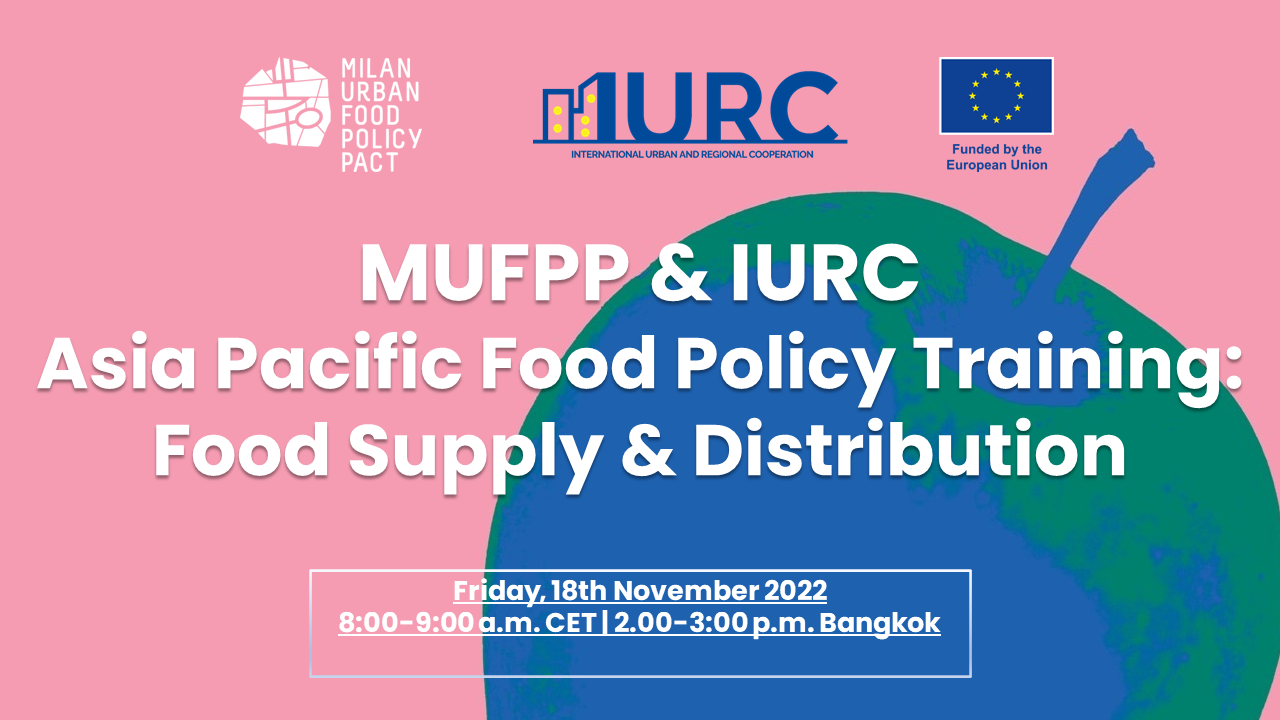The Milan Urban Food Policy Pact (MUFPP) Secretariat and IURC Asia & Australasia co-organised the fifth webinar of their food policy training series on 18 November 2022, focusing on the topic of food supply and distribution. Over 40 participants from Asia Pacific and beyond joined the one-hour event.
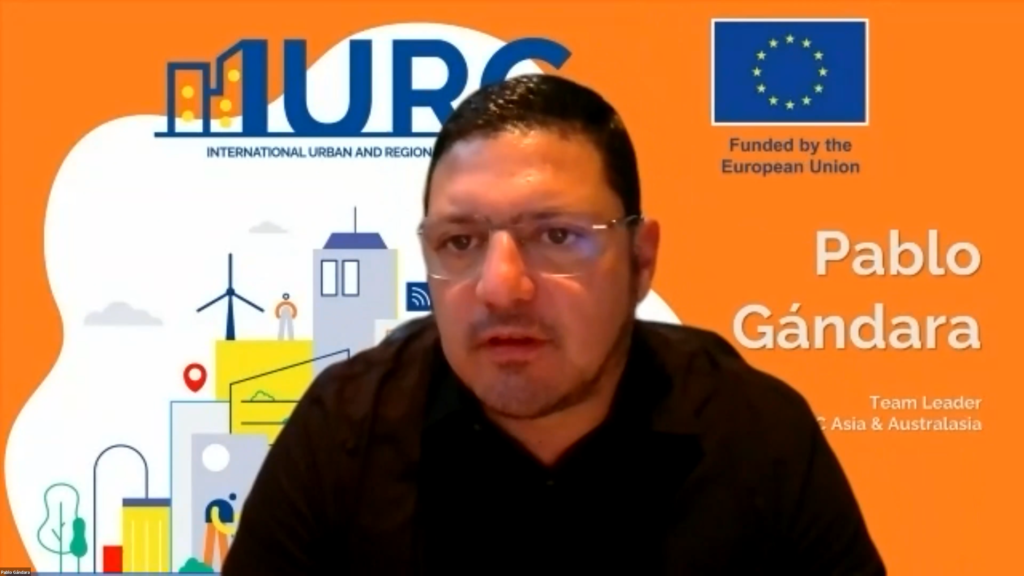
Pablo Gandara, Team Leader of IURC Asia & Australasia, provided a brief introduction to the IURC programme and highlighted sustainable agriculture and food systems as one of the key topics of cooperation for IURC cities. He also encouraged the participants to visit the website, where they could find information on previous activities on food policy.
Moderating the training was Filippo Gavazzeni, Head of the MUFPP Secretariat, City of Milan, who provided the latest updates on the activities of the MUFPP, including this year’s regional forum in Bandung and global forum in Rio de Janeiro, and presented the recommended actions and respective indicators of the Food Supply & Distribution category of the MUFPP.

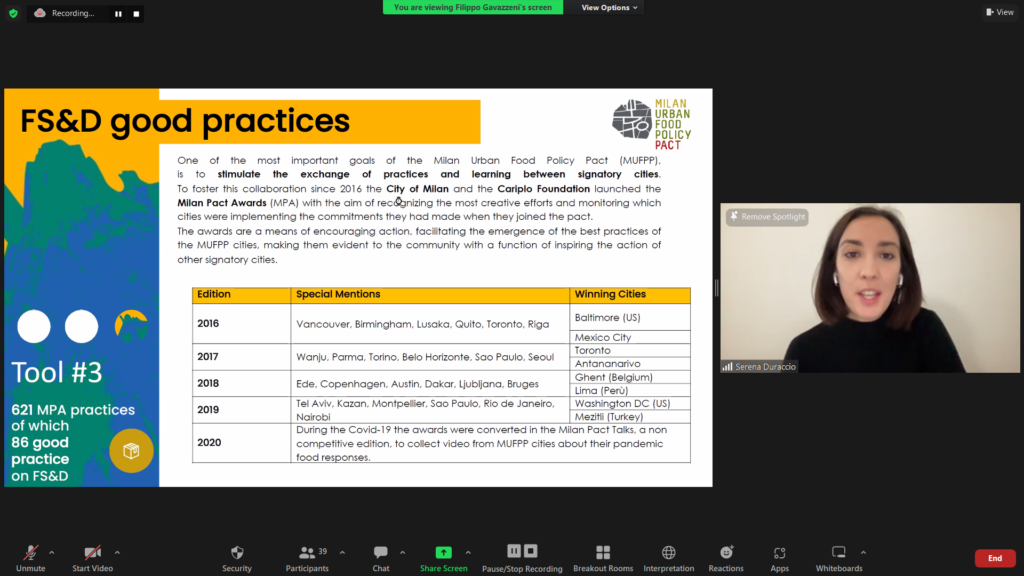
Serena Duraccio, an officer of the MUFPP Secretariat, City of Milan, presented a list of best practices in the Food Supply & Distribution category that that have received awards or special mentions in the Milan Pact Awards (MPA) before providing more details on two case studies from Europe: Barcelona and Lyon, both received special mentions at the MPA 2022. Barcelona has developed a programme to ensure food security and affordability in the city while enabling producers to sell their products at a fair price, focusing on sustainable, organic produce. In Lyon, the city and the metropolitan city have developed an ambitious joint policy aimed at improving food resilience and food justice while also promoting a local sustainable supply chain. One of the key pillars of this programme is public procurement with a target of 100% organic products and 50% local products in school canteens.
Elisa Porreca, Food Policy Officer of the City of Milan, gave a presentation titled “Food Infrastructure as the Main Driver for Food System Transformation”, showcasing several infrastructural entities in Milan’s food system and highlighting different partnerships that help the city ensure food accessibility, prevent food losses and food waste, and reduce the environmental impact. For example, the school canteen programme includes 658 canteens and 24 kitchen centers. By reducing the purchasing of red meat, GHG emissions has lowered by around 20% from 2015 to 2019.
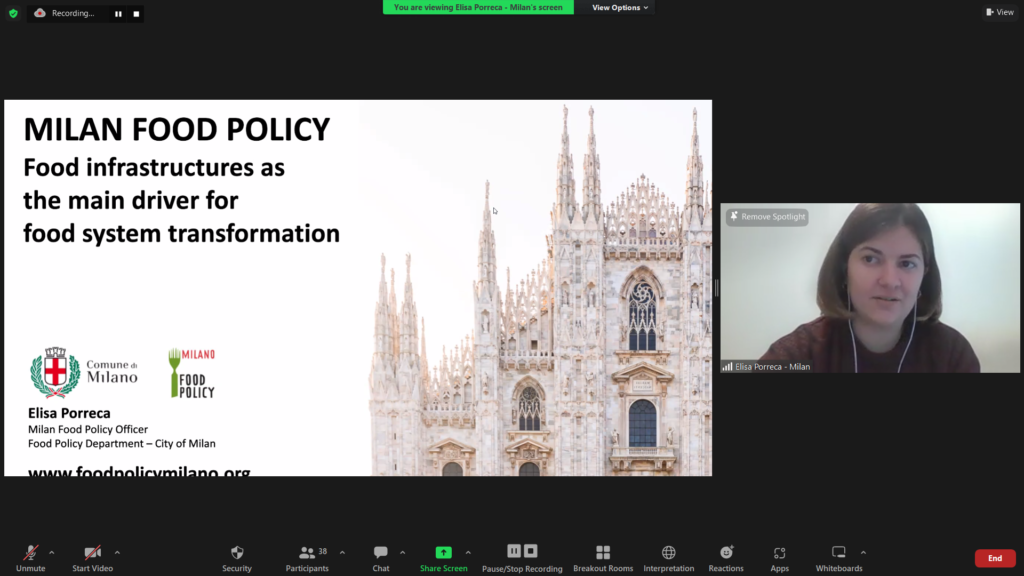
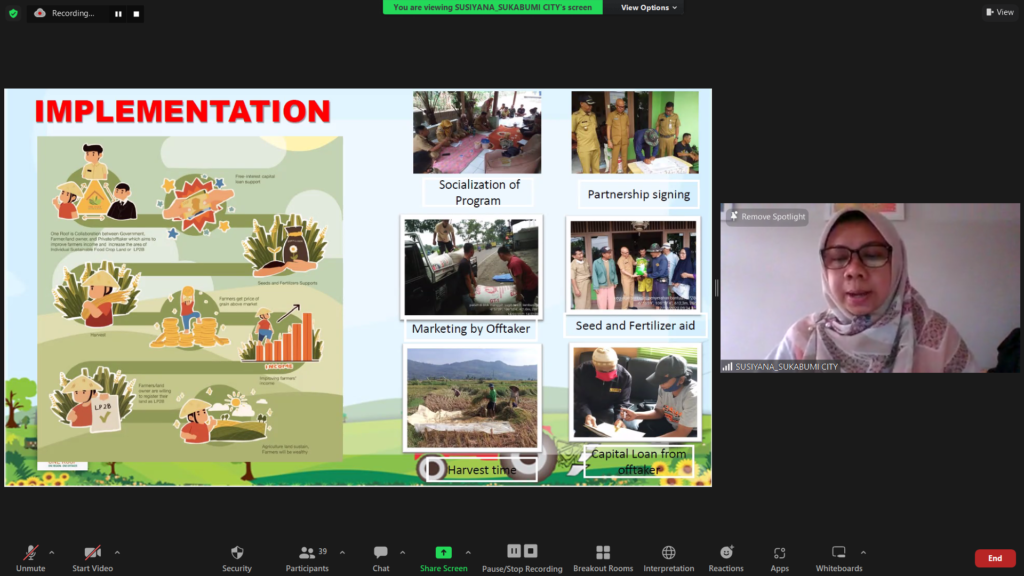
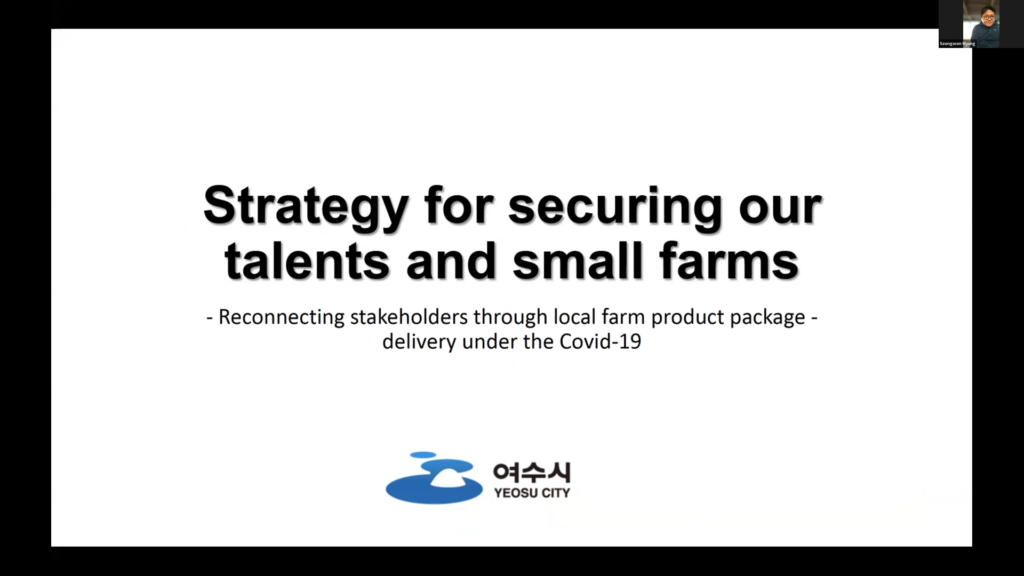
Representing Southeast Asia is the city of Sukabumi, Indonesia. Susiyana, Secretary of Food Security, Agriculture and Fisheries Department, presented the ONE ROOF (One Region One Offtaker) programme, initiated in 2020. In this programme, farmers and offtakers enter into partnership in which the farmers have more access to funding and marketing support from the offtakers. The programme allows the farmers to earn higher income while communities enjoy the produce with lower prices. In addition, farmland is preserved, and the younger generation is motivated to work in the agricultural sector.
Last but not least, Seongwon Myung, International Relations Officer from the City of Yeosu, gave a presentation titled “Strategy for Securing Talents and Small Farms”. This programme reconnects the stakeholders in the school meal programme under the COVID-19 situation.
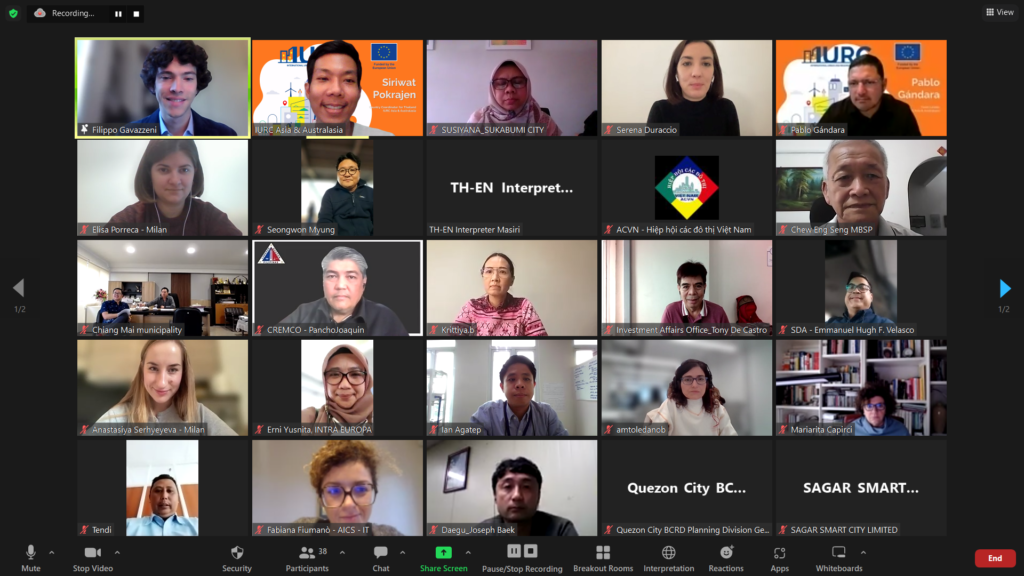
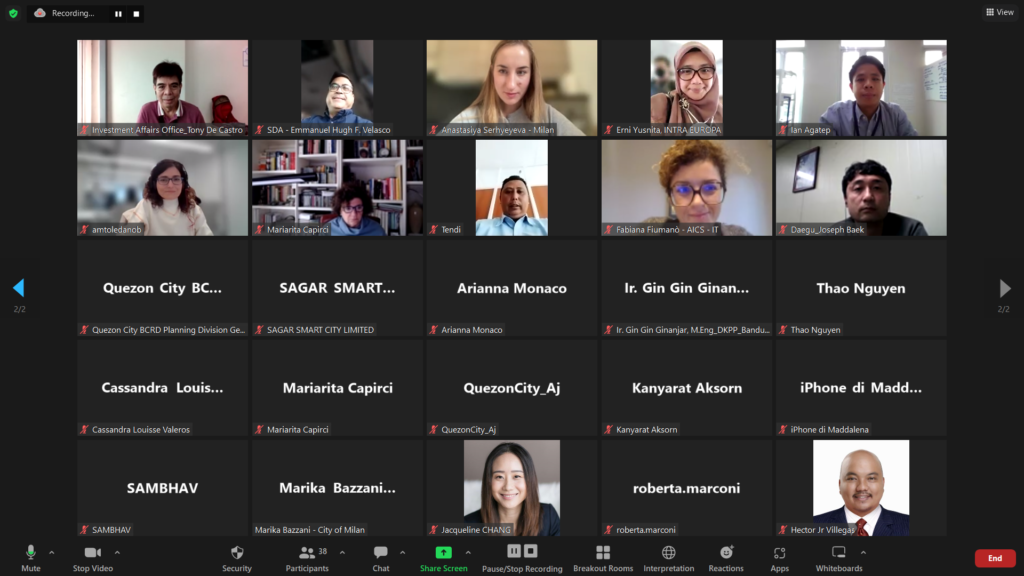
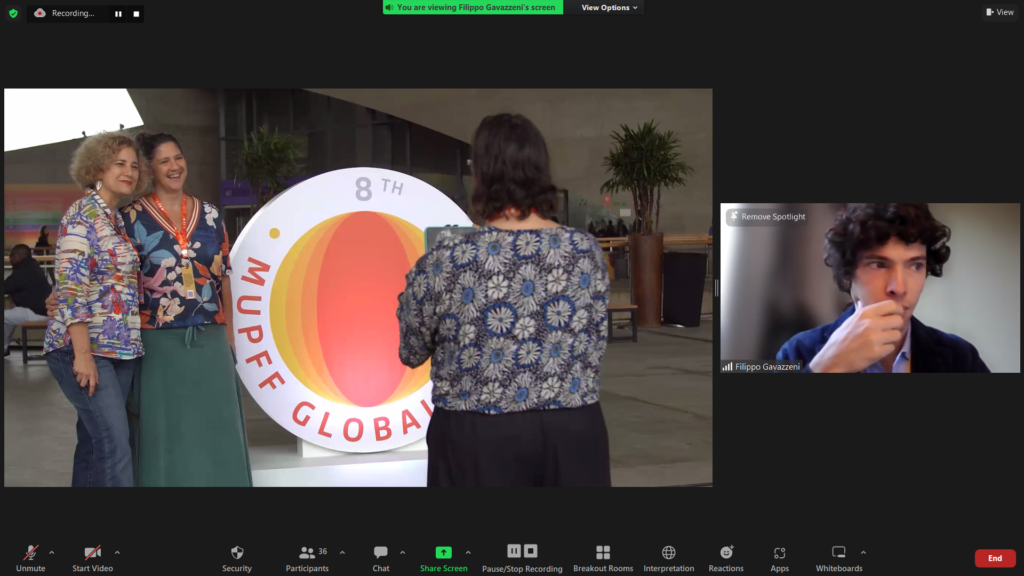
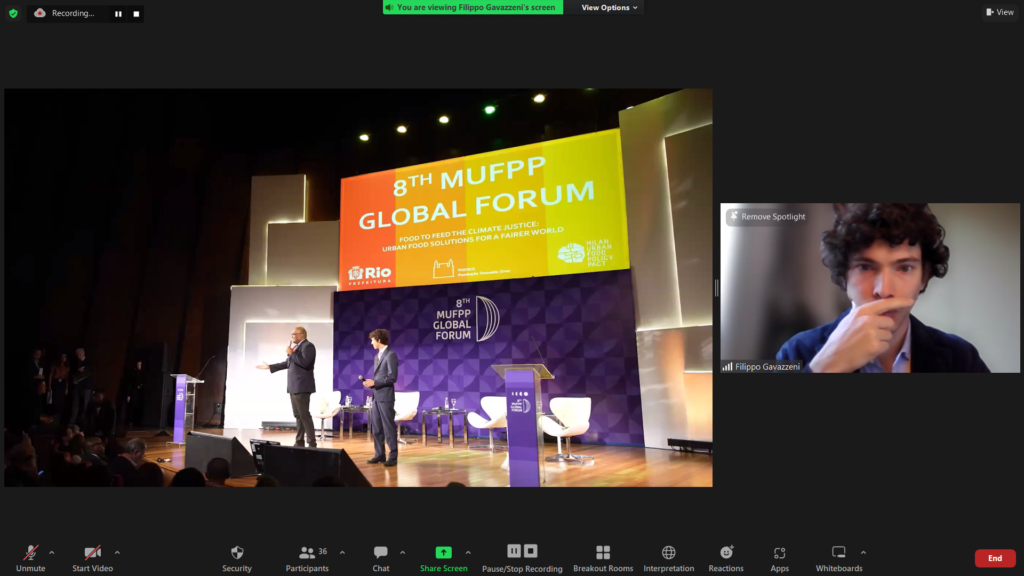
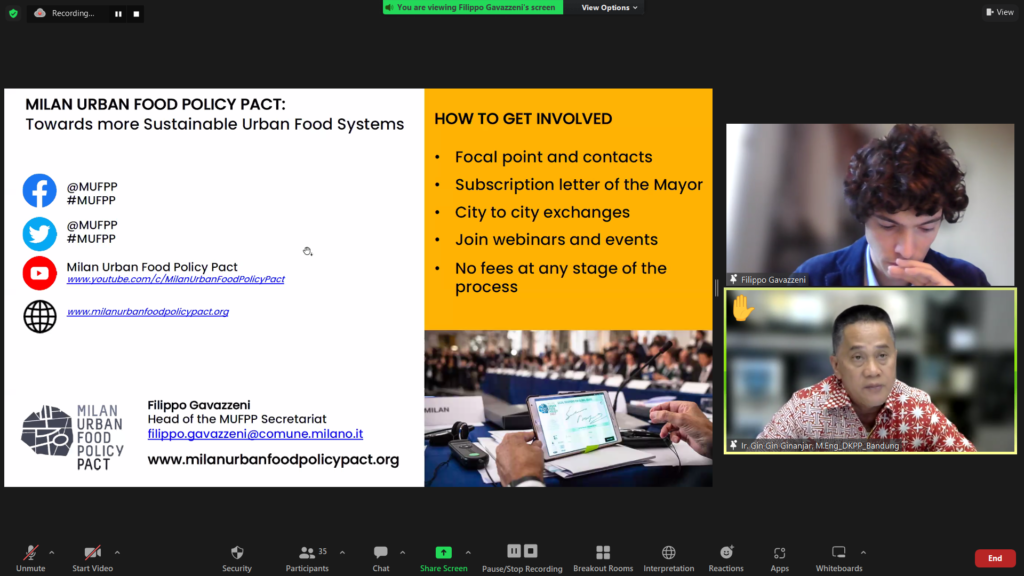
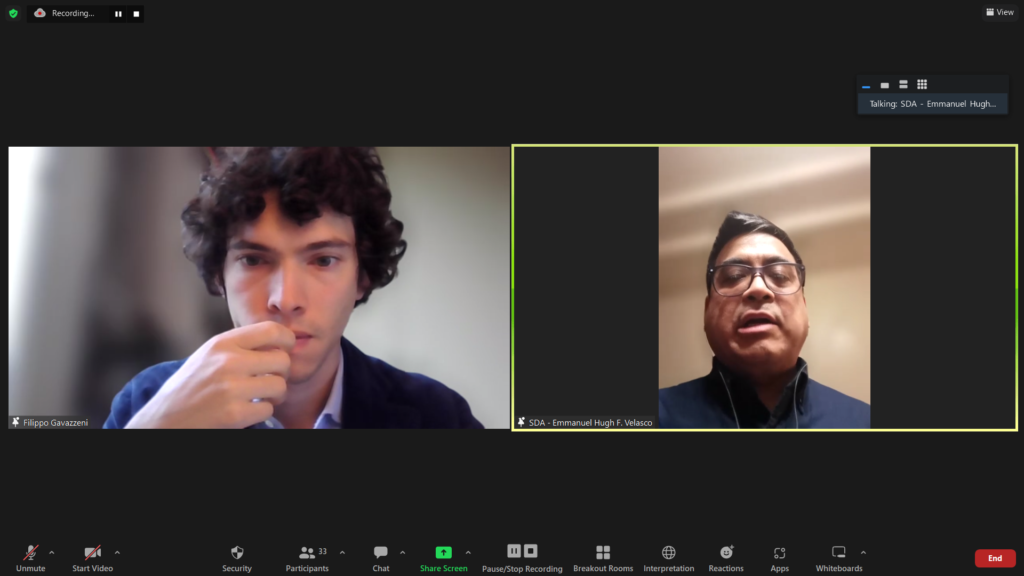
Presentations
- Agenda of MUFPP & IURC Asia Pacific Food Policy Training: Food Supply & Distribution
- IURC Sustainable Agriculture Thematic Network
- MUFPP & IURC Asia Pacific Food Policy Training: Food Supply & Distribution
- Milan: Food infrastructures as the main driver for food system transformation
- Sukabumi: One Roof (One Region One Offtaker)
- Yeosu: Strategy for securing our talents and small farms
